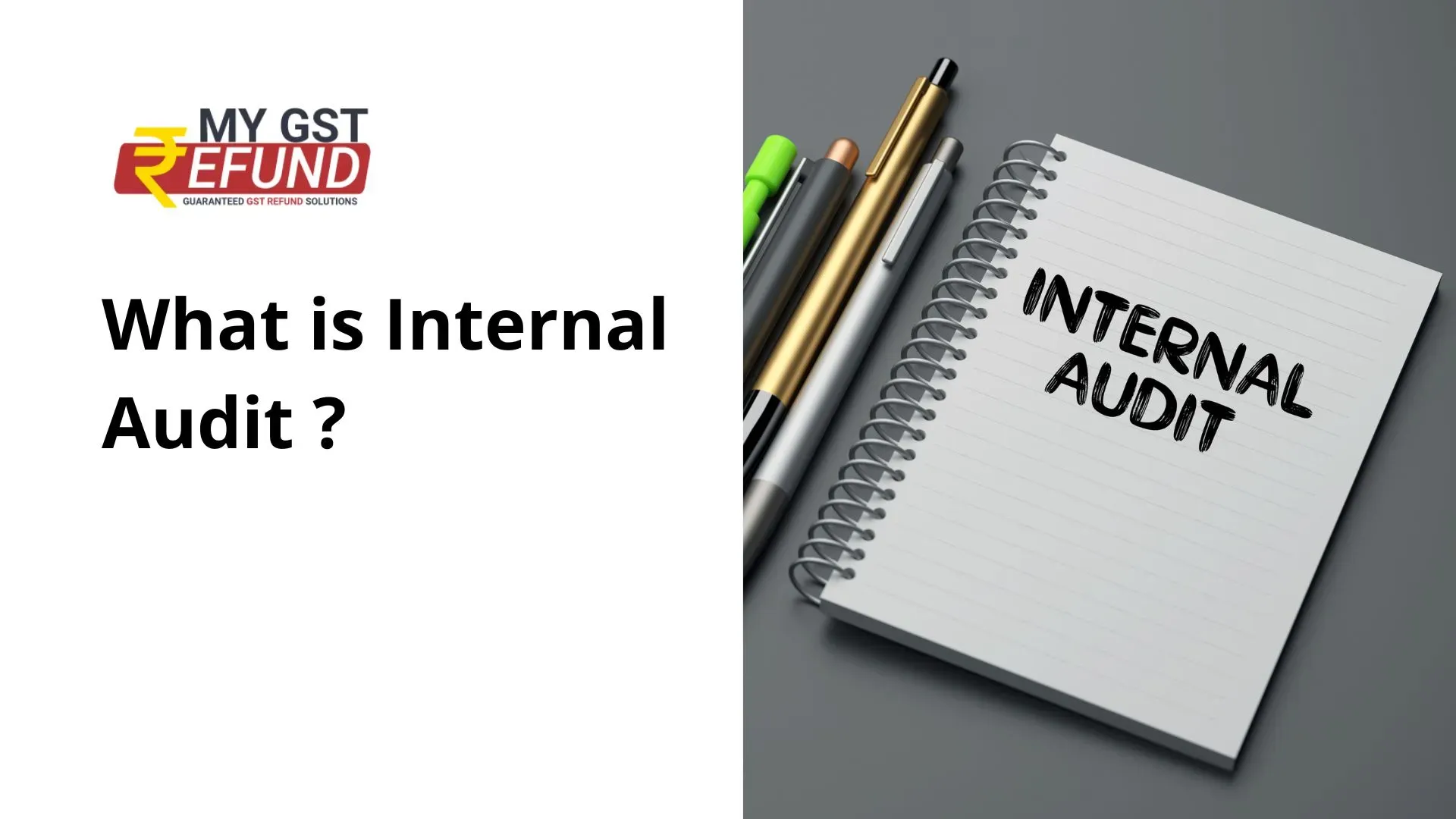What is Internal Audit?
Internal Audit is a phenomenon when an organisation or department is tasked with providing their independent reviews of the system in an unbiased way along with the processes. Internal Audit is directly performed within a company while keeping the company standards in mind. Some people confuse it with statutory audits, from which Internal Audits are quite different.
Objectives of Internal Audit
The main purpose or objective of an Internal Audit is the provision of objective information to the upper management, government bodies, etc. Such objective information includes that of the control over the environment, risks for the organisation, and much more. Each of the individuals who come for the Internal Audit is known as Internal Auditors, who are themselves sent by their organisation.
1. Proper Control: To keep proper control over the organisation is one of the main objectives of an Internal Audit. The authenticity of the financial records and the efficiency of the firm have to be maintained and the management needs proper assurance. The Internal Audit helps to establish both.
2. Perfect Accounting System: The accounting system of the organisation is thoroughly checked by an Internal Audit. From vouchers to the authority of transactions to accuracy in mathematics all serve the purpose of Internal Audit. All entries are verified so that the chance of mistakes or fraud can be reduced.
3. Review of Business: The financial and operational aspects of a business are to be checked by the Internal Audit. The Internal Audit process checks out the mistakes, strengths, and weaknesses in the business.
4. Asset Protection: The internal Audit process performs the valuation and verification of an asset. In case of any special transactions like purchase, sale or revaluation of assets, the authorization is audited particularly by Internal Audit.
5. Keep a Check on Errors: There will be mistakes in financial records which are checked at the end of a financial year. But with Internal Audit, the mistakes are spotted and rectified immediately.
6. Detection of Fraud: This is another main purpose of Internal Audit. In fact, Internal Audit is helpful to the organisation because due to its presence, an employee is less likely to do any fraudulent activity. There will be no time in making fraud and how the Internal Audit process will run and so this will end up committing less fraud in an organisation
Types of Internal Audit.
- Operational Audit: The efficiency and effectiveness of a particular department in an organisation is evaluated by the operational audit. Some areas of the operational audit are organisational structure, the accuracy of data, processes and procedures, management and security of staffing, assets and productivity.
- Environmental Audit: The impact of the operations of a company on the environment is assessed by environmental audits. Assessment of the company’s compliance with certain environmental laws and regulations is also maintained.
- Compliance Audit: Evaluation of compliance with applicable laws, policies, regulations, and procedures. Failure to comply with laws like the Foreign Corrupt Practices Act (FCPA), and General Data Protection Regulation (GDPA), may result in fines of huge amounts or may even prevent a company from doing further business.
- Financial Audit: A financial audit is a historically oriented and independent evaluation process performed to maintain fairness, accuracy, and reliability of financial data. The objective is to ensure that the financial activity of a unit or area or department is accurately reflected in the financial reports.
Benefits of Internal Audit
The following are the benefits of conducting an internal audit in an organisation.
- Proper Accounting Systems: Internal audits introduce an appropriate system of accounting. An accounting system comprises a chain of activities in a company by which transactions are processed to maintain financial records. To achieve desirable results, orderly devices are required, which can be achieved through internal auditing.
- Better Management: It ensures better business management in the organisation. An auditor can point out areas of weakness in management. The business objectives can be achieved if there is proper internal control, internal check, and internal audit. It should be noted that management has the option to completely rely on internal audit for the best results.
- Progressive Review: It can help review the progress of the business. The figures from previous years are compared to those of the present year. The performance results of various similar companies can be considered and compared to determine the progress of the entity. An internal audit helps the management review the growth of the entity.
- Effective Control: It is essential to retain effective control over business activities. Control comes under management’s functions and is related to the supervision and direction of ongoing operations. The manager can make the necessary changes according to the internal audit and remove the difficulties for a business’s smooth functioning.
- Assets Protection: The protection of assets is possible through an internal audit. The management can only use the assets for the benefit of the business and not for private purposes. Internal auditing keeps an eye on embezzlement of cash, misappropriation use of stock and misuse of other assets from ever occurring.
- Division of Work: It can be conducted to apply the division of labour. This is necessary to monitor the activities of every employee, including the management. The auditor may choose to suggest ways to improve the business’s performance.
- No Error and Fraud: Internal audits can be conducted to protect accounting records from errors and fraud. Accounting and auditing in a company go hand in hand, as the latter begins when the former is done. In such situations, the mistakes and deceptions committed by accounting personnel can be detected and rectified easily.
Disadvantage of Internal Audit
The following are the limitations of an internal audit.
- Staff Shortage: One of the few limitations of an internal audit is the staff shortage. A reasonable audit staff must examine the records and conduct a proper internal audit. The lack of a team would restrict the organisation from reaping the benefits of the internal audit.
- Time Lag: As internal audits begin when accounting ends, there is a significant time lag between recording and checking entries.
- Error: An internal audit’s limitation is that undetected errors may remain in the books of accounts, as this depends upon the expertise of the internal audit staff. If the staff is experienced and competent, the chances of an error going undetected are very low. In the case of poor audit staff, there is no guarantee that the audited accounts are free from errors.
- Responsibility: The limitation of an internal audit is that management does not feel that it is their responsibility to complete the formalities of the audit. The audit staff could offer suggestions for the proper functioning of a business. However, the top-level management would not necessarily pay attention to the suggestions offered, which would be of no help or a loss to the company.
- Duties: The whole purpose of an internal audit may fail if the duties of the audit staff are not adequately divided and implemented using a method that ensures the optimum utilisation of organisational resources.
Internal Audit vs External Audit
Qualification of Internal Auditor
According to Section 138(1) of the Companies Act, 2013, the following persons can be appointed as the internal auditor of a company –
- Chartered Accountant (whether engaged in practice or not); or
- Cost Accountant (whether engaged in practice or not);
- Any other professional as may be decided by the Board of Directors.
Also, the internal auditor can either be an individual or a partnership firm or a body corporate. He may or may not be an employee of the company. However, the statutory auditor of the company cannot be appointed as its internal auditor.
Procedure for Appointment of Internal Auditor
The following is the procedure for the appointment of an internal auditor –
Step 1: Obtain written consent and certificate from the prospective internal auditor, confirming his eligibility for appointment as the internal auditor of the company.
Step 2: Issue a notice to convene a board meeting for the appointment of the internal auditor and determine his remuneration.
Step 3: Convene the board meeting and pass a resolution for the appointment of an internal auditor. Also, authorise the Company Secretary or a director to file the relevant form(s) with the Registrar of Companies (ROC).
Step 4: Draft the minutes of the meeting and circulate them to all directors for their comments within 15 days of the board meeting.
Step 5: File the board resolution with the Registrar of Companies (ROC) within 30 days of passing the same. It shall be filed in Form MGT-14 along with prescribed fees.
Step 6: Issue the official appointment letter to the internal auditor.
Conclusion
In summary, internal audits are essential for improving how organisations manage risks and operate efficiently. They provide clear insights and ensure that rules are followed, which protects assets and keeps financial records honest. Although they face challenges like not having enough staff and the risk of missing things, internal audits help companies get better and stay responsible.
FAQs
Q.1 What is the main purpose of an internal audit ?
Ans. The role of internal audit is to provide independent assurance that an organization's risk management, governance, and internal control processes are operating effectively.” Internal auditing objectively enhances an organisation's business practices.
Q.2 Who appoints an internal auditor ?
Ans. The Internal Auditor is appointed by the Board of Directors of the Company. Internal auditor helps to evaluate and improve the effectiveness of risk management, control, and governance processes in an organisation.
Q.3 What is the limit of internal audit ?
Ans. Turnover of 200 crores or more and outstanding loans/ Borrowing from banks or financial institutes exceeding the limit of 100 crores or more.
Also Read- Letter of undertaking
Related Posts








